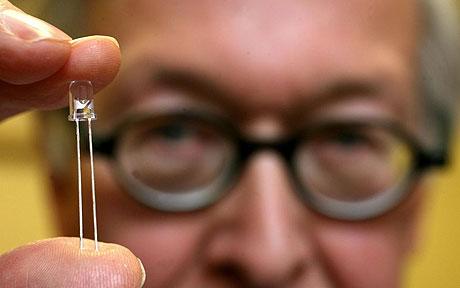Scientists invent £2 energy saving lightbulb that last for 60 years

A £2 energy-saving lightbulb that lasts for 60 years has been developed by scientists at Cambridge University.
The researchers have designed a bulb that is three times more energy efficient than today’s best offer and can cut lighting bills by 75 per cent.
The bulbs are made using Gallium Nitride (GaN), a man-made substance used in LEDs (light emitting diodes). It is routinely used in bike lights, mobile phones and camera flashes.
But until now the production costs have been too expensive for widespread use in homes and offices - a single bulb would have cost £20.
However, using funding from the Engineering and Physical Sciences Research Council, the researchers found a cheaper technique to help manufacture the bulbs. Manufacturers have already begun work on production prototypes and the first units could hit shelves within two years.
Professor Colin Humphrey, head of the centre, said: “This could well be the holy grail in terms of providing our lighting needs for the future.”
The bulbs are 12 times more efficient that conventional tungsten bulbs and three times more efficient than compact fluorescent “energy efficient” bulbs.
They can burn for 100,000 hours and they illuminate instantly and can be dimmed, unlike energy efficient bulbs.
If they were installed in every home and office the bulbs could cut the proportion of UK electricity used for lights from 20 per cent to 5 per cent a year.
By Louise Gray, Environment Correspondent
You can return to the main Market News page, or press the Back button on your browser.

